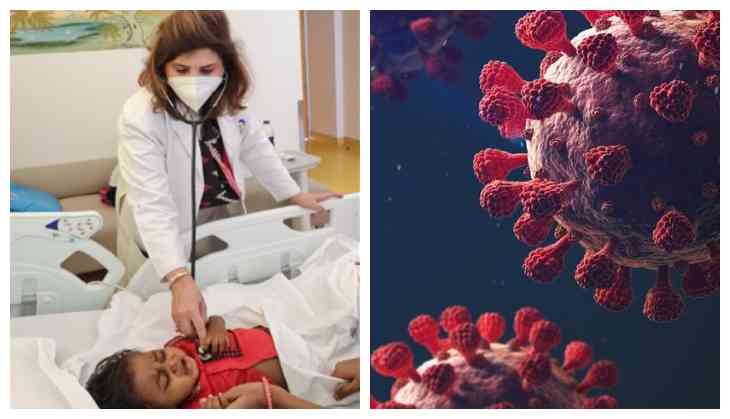
The cases of Multisystem inflammatory syndrome in children (MIS-C) have gone up in Delhi-NCR during the second COVID wave. An estimated 300 cases have been reported in the last two weeks. "There is no centralised data on MIS-C in India and doctors make efforts on their own to update the list in big cities. This is not an accurate mechanism to collect data. We also fail to assess the spread of MIS-C in rural areas and cities," says Dr Dhiren Gupta, paediatric intensivist, Sir Ganga Ram Hospital, New Delhi.
Experts believe that if we witness the third wave, children could be the next target. With practically no medical infrastructure to provide intensive child care at a large scale, India appears ill-equipped at present to deal with any unprecedented surge in MIS-C cases if there is any third wave.
"Doctors and other members of the medical teams in cities and rural areas must be trained to treat and take care of medical needs of infants, toddlers, and grown-up children. Training must be imparted to the medical staff at a war footing if we seriously want to protect the children from the possible third wave," says Dr Neelam Mohan.
Dr Neelam leads the pediatric Covid department at Medanta Medicity and has been part of the task force of various government panels dealing with COVID-19. "Children can't be treated like adults and medical teams dealing with adults must be trained to provide medical care to children keeping in mind the special needs of children," says Dr Neelam Mohan
MIS-C is a condition where different body parts of children can become inflamed, including the heart, lungs, kidneys, brain, skin, eyes, or gastrointestinal organs. A child presents with MIS-C symptoms between 2 to 8 weeks of being exposed to the coronavirus.
"The symptoms of MIS-C include high fever for more than three days, abdominal pain, rashes, swelling of hands and feet, redness of eyes, vomiting and difficulty in breathing, says Dr Dhiren.
MIS-C requires intensive care and the treatment is costly. "Nearly 80% MIS-C cases require ICU facility. This means four children out of a total of five children with MIS-C syndrome require ICU facility," says Dr Dhiren Gupta.
Are we equipped to deal with any big surge in MIS-C cases in future?
Some health experts believe that no serious efforts are being made to develop physical infrastructure for the critical care of children.
"When the governments are not willing to quantify the spread of MIS-C, it shows the lack of commitment to deal with the problem. We have done precious little in developing health infrastructure after Independence. We could be heading for a major disaster, but sadly governments are not coming out with exact infection numbers, forget about addressing the problem," said one senior doctor on condition of anonymity.
This is a race against time. Unless all concerned come together and act immediately, nothing much will change.
Also Read: COVID-19: Protect children from Coronavirus third wave, MISC syndrome big concern



